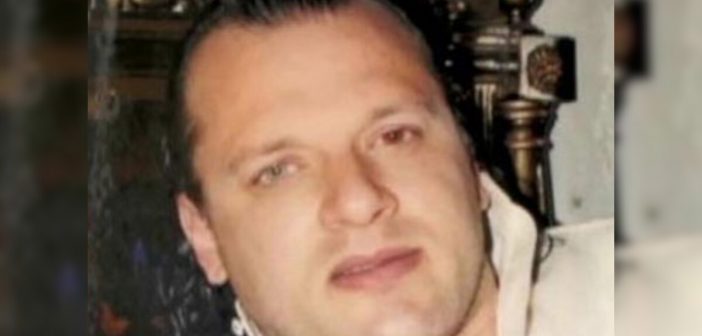As India deliberates on U.S. calls for the extradition of Vikas Yadav, recently implicated in an alleged conspiracy against U.S.-based Sikh separatist Gurpatwant Singh Pannun, the country has compelling grounds to renew its demand for David Coleman Headley’s extradition. Headley, an American with Pakistani ties, was instrumental in planning the 2008 Mumbai attacks, resulting in 166 deaths and over 300 injuries. Despite his role, Headley remains incarcerated in the United States, shielded by a plea agreement preventing extradition. India has made multiple extradition requests for Headley over the years, but they have all been denied—a situation that raises questions of consistency in India-U.S. legal cooperation on anti-terrorism.
The Case for Headley’s Extradition: Justice for 26/11 and National Security
Headley’s role in the Mumbai attacks extended beyond reconnaissance: he provided Lashkar-e-Taiba (LeT) with critical intelligence on potential targets in Mumbai, including the Taj Mahal Palace Hotel and Nariman House. His scouting missions in 2007-2008 facilitated one of India’s most devastating terrorist incidents, where civilians, police, and international tourists fell victim. For India, extraditing Headley represents not only justice for the victims but also a significant stance against international terrorism. Furthermore, given the precedent of allowing Indian investigators limited access to interrogate Headley in 2016, India asserts that his extradition is both justifiable and feasible.
However, Headley’s plea bargain with the U.S. Department of Justice included a stipulation that he would not face extradition. This has sparked contention within India, where officials argue that Headley’s protection from extradition undercuts bilateral efforts against terrorism. Unlike Yadav, who is merely implicated and yet to be convicted, Headley was directly involved in a proven attack on Indian soil, making his extradition vital to India’s interests in prosecuting those who threaten its national security.
Strategic Value in Challenging U.S. Requests
By invoking Headley’s extradition, India can leverage its position amid U.S. demands for Yadav’s extradition. U.S. officials have based their requests on charges that Yadav and other officials allegedly plotted against Pannun, a controversial figure leading separatist activities in the United States. However, Yadav’s alleged involvement remains unproven, and under Indian law, extradition without conviction is generally avoided. Conversely, Headley’s role in the Mumbai attacks is well-documented, and a clear conviction exists. Given this disparity, India has a solid basis to argue that it cannot honor the U.S. request for Yadav without reciprocal action on Headley.
The U.S. claim that a “pre-signed” agreement protects Headley from extradition has repeatedly stymied Indian efforts to bring him to trial domestically. Yet, this reasoning appears inconsistent with India’s legal expectations. New Delhi can underscore that if extradition requests are grounded on mutual interests in justice and security, the U.S. should reciprocate by extraditing Headley. Thus, India’s demand would address both a legal and ethical gap in international cooperation, where Headley’s actions affected not only Indian nationals but also the country’s relationship with international counterterrorism efforts.
U.S. India Relations and Headley’s Extradition: A Question of Diplomatic Consistency
The U.S. has maintained that Headley’s plea bargain stands as a barrier, yet this stance creates a diplomatic inconsistency. As one of India’s key strategic allies in the Indo-Pacific, the U.S. promotes cooperation with India on security and counter-terrorism; protecting Headley undermines this collaboration. Headley’s intelligence-sharing with the Pakistani intelligence agency, ISI, further complicates this, exposing a network that continues to operate against Indian interests. By refusing extradition, the U.S. risks sending a message that undermines India’s sovereignty in addressing terrorism on its soil, an area both countries have vowed to tackle jointly.
In exchange for cooperating on Yadav’s case, India could assert its expectation for the U.S. to address unresolved aspects of the Headley matter. India has previously faced similar situations, where extradition requests from the U.S. were granted for individuals with far less severe offenses. By demanding reciprocity, India challenges the U.S. to follow its own principles of supporting allies in matters of justice and security, thus bolstering mutual respect within the Indo-Pacific partnership.
Broader Implications for U.S.-India Legal and Strategic Partnerships
India’s demand for Headley’s extradition also aligns with a growing trend among countries advocating for legal sovereignty over international terrorism suspects. The current landscape of anti-terror collaboration demands mutual commitment, a concept that can be undermined if a key player like the U.S. holds back cooperation when faced with an extradition request as critical as Headley’s. For India, prosecuting Headley domestically would not only provide closure for victims of the Mumbai attacks but also reinforce the country’s position on enforcing justice against cross-border terrorism.
The diplomatic and strategic landscape is clear: for India, securing Headley’s extradition is both a national security imperative and a symbol of its resolve to address terrorism independently. Given the strong alignment between India and the U.S. on issues of Indo-Pacific security, India’s insistence on extraditing Headley, even as it considers the U.S. request for Yadav, reflects a balanced approach to counterterrorism cooperation. By demanding reciprocity, India can reaffirm its stand against terrorism while bolstering its legal and diplomatic posture on the global stage.





